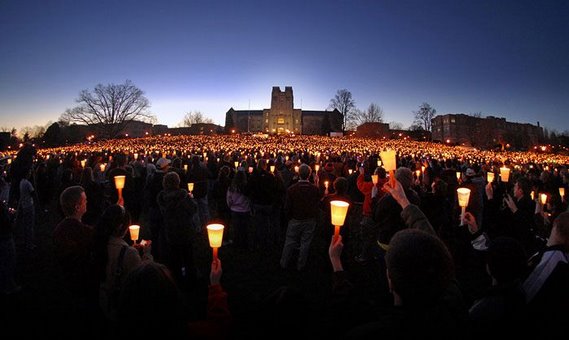Alexander Tyler, a late 18th century Scottish history professor, had some comments on Democratic government that seem well placed today. His comments were not about the new American Republic that had just come on the scene, but about the rise and fall of the Athenian Republic some 2000 years prior. His comments carry some points in common to our own republic today, although he could not have envisioned where the American experiment was going.
Tyler suggested that true democracy is temporary in nature, and follows a sort of life cycle seen in the Athenian fall, and many other civilizations if you think about it. The life cycle includes the following stages:
1. Bondage to Spiritual Faith .
2. Spiritual Faith to Courage.
3. Courage to Liberty.
4. Liberty to Abundance.
5. Abundance to Complacency.
6. Complacency to Apathy.
7. Apathy to Dependence.
8. Dependence to Bondage.
The average lifespan of a democracy over history, using this model, takes around 200 years. Some of these stages take very little time, and others take many decades, but it seems the inexorable tide continues through this cycle as Tyler suggested. It does not take much effort to apply the history of America to this model, and placing our life cycle today somewhere in the 5-7 range depending on your personal view. It seems that as we "allow" government to replace liberty, it is as if we are winding up a big rubber band that gets closer and closer to the point where it breaks loose. That would have been the case in the American Revolution, the French Revolution and ultimately every revolution that has been fought to "free" people from bondage. We replace faith with government programs, freedom with protection, personal accountability with "rights," all the way to the point where the society we created has ceased to be a democracy. You can see this today in many European countries, even those claiming to be free and democratic, where in reality the situation is some sort of pseudo-Socialism as the people have discovered they can vote for candidates or structures that provide personal benefits in lieu of personal freedoms.
Personally, I prefer government to take a lesser role, I don't want the government to tell me how to live my life, especially in return for a program that may or may not help me have a better life. As a nation, we established the direction of the federal government during the Civil War, that the federal government will centralize power over states and ultimately individuals. That direction will continue until the day the people take that power back, either through a cultural change that says enough is enough or through some calamity that forces a new start. I think it is time for Americans to stop taking the easy way out, stop depending on government to provide for our needs when we should be doing it ourselves, stop depending on others to define our relationship to our God and stop depending on our leaders to work to supply our needs in order to stay elected. Let's put people in positions to get the job done and expect that we have some responsibility to do the same, regardless of whether or not "our" person is elected.
Government exists to satisfy a need for the common good, to provide a central authority where larger needs such as common defense would not be appropriately handled by individuals. In the beginning of a democracy we see anarchy alongside freedom, later to be replaced with policies and regulations alongside government intervention. There are many who are labeled subversives, and rightly so when they use force to achieve their goals, but throughout the history of democratic government it has been the "subversives" that are now considered the heroes of society. Our Founding Fathers expected to be captured and hanged as subversives, but instead we lionize their activities as those of courageous men. Good thing it worked out that way for their (and our) sake. I suppose the term "subversive" only applies to those who failed to achieve productive change, and not to those who took a great risk and achieved something.
We are biblically called to provide prayerful support to the leaders of our government, and that counts whether or not you believe their actions to be in line with your own or not, but we as individuals fail our higher calling when we sit back and let things happen through our own apathy. The simplest power that we share in a democracy is the power to vote, and I hope and trust that every one will do that, regardless of who I think is "right" or "wrong." There is a local primary in VA today pitting Scott Sayre against Emmitt Hanger, personally I do not have a clear understanding of which candidate to vote for as I think they are both good choices for very different reasons, but I am hopeful that people will get out and vote absed on their conscience and then be prepared to help support the winner, instead of withdrawing if their guy is not elected. Either candidate will do a good job for VA in terms of keeping government smaller, keeping taxes low and supporting the conservative views of the region, so vote for your choice and exercise your democratic rights to support our republic and hopefully extend or alter the life span of our democracy.
Monday, June 4, 2007
Subscribe to:
Posts (Atom)

